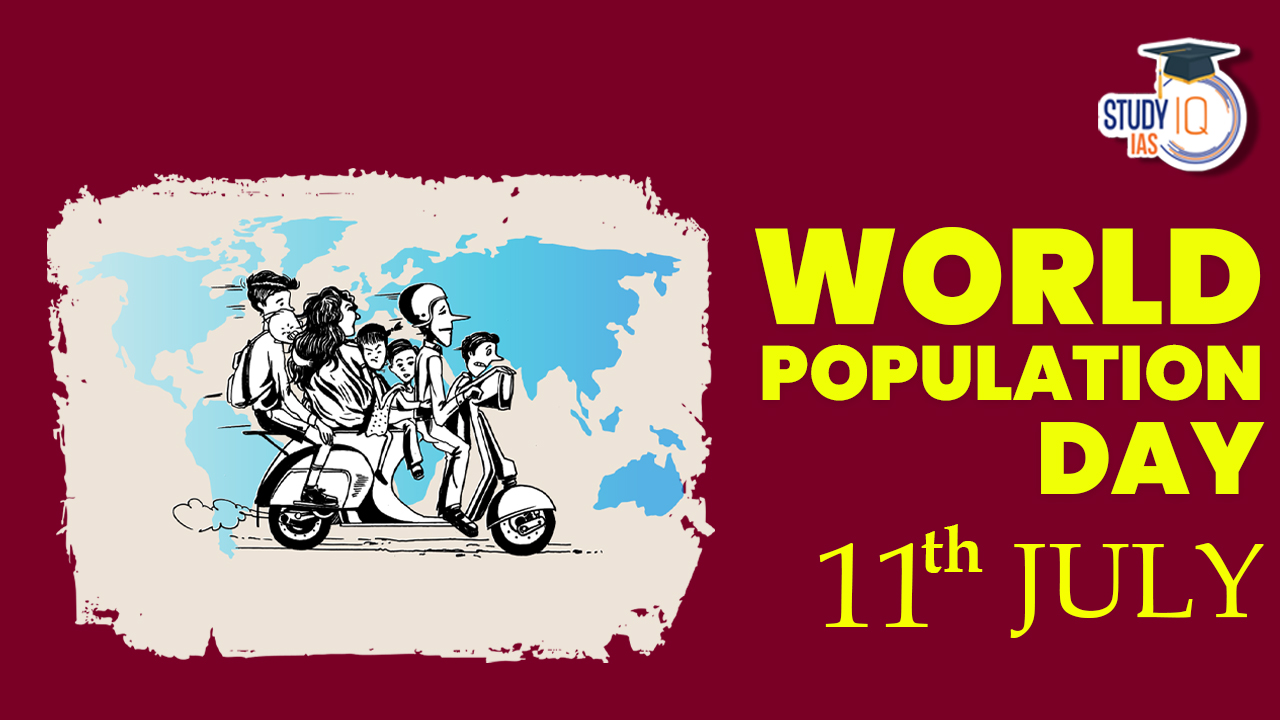Table of Contents
According to Worldometer, the current global population is 8,120,886,060 and rising. The world’s population has experienced a significant surge in recent times. While it took centuries for the population to reach 1 billion, it has grown sevenfold in just a few hundred years. According to the UN, the population reached 7 billion in 2011. This rapid growth presents numerous significant challenges.
World Population Day 2024
World Population Day is an annual event observed on July 11, established to raise awareness about global population growth and its impact on development and sustainability. This year, the theme is “Leave No One Behind, Count Everyone,” emphasizing the importance of inclusive and thorough data collection in population censuses.
World Population Day 2024 Theme
The theme for World Population Day 2024, “Leave No One Behind, Count Everyone,” draws attention to the inclusive and thorough data collection process in population censuses. This theme ensures that everyone is fairly represented in the numbers—regardless of background, nationality, geography, or socioeconomic standing.
10 Most Populated Countries in World
On World Population Day, we aim to raise awareness and understanding of global population issues, including demographic trends, growth projections, and their impact on sustainable development. Explore the most populous countries in the world as of 2024. Here are the top 10 most populated countries in the world, as of 2024:
| Rank | Country Name | 2024 Population | 2023 Population | Growth Rate | World % |
| 1 | India | 1,441,719,852 | 1,428,627,663 | 0.92% | 18.01% |
| 2 | China | 1,425,178,782 | 1,425,671,352 | -0.03% | 17.80% |
| 3 | United States of America | 341,814,420 | 339,996,563 | 0.53% | 4.27% |
| 4 | Indonesia | 279,798,049 | 277,534,122 | 0.82% | 3.50% |
| 5 | Pakistan | 245,209,815 | 240,485,658 | 1.96% | 3.06% |
| 6 | Nigeria | 229,152,217 | 223,804,632 | 2.39% | 2.86% |
| 7 | Brazil | 217,637,297 | 216,422,446 | 0.56% | 2.72% |
| 8 | Bangladesh | 174,701,211 | 172,954,319 | 1.01% | 2.18% |
| 9 | Russia | 143,957,079 | 144,444,359 | -0.34% | 1.80% |
| 10 | Ethiopia | 129,719,719 | 126,527,060 | 2.52% | 1.62% |
India has only 38 years before its population starts shrinking: UN Report
- The UN World Population Prospects report forecasts India’s population to peak at 1.70 billion in 2062, signifying 38 years of growth until then.
- Currently holding the title of the world’s most populous country, India is projected to maintain this position by the century’s end.
- UN data suggests India’s population will reach its peak around July 2062. While the population is expected to grow by approximately 222,000 that year, a decline is projected to begin soon thereafter. Estimates indicate a population decrease of around 115,000 in 2063, with this decline accelerating in subsequent years. By 2065, the annual population loss is projected to reach 793,000.
History of World Population Day
World Population Day originated on July 11, 1987, when the global population reached an estimated five billion people, sparking worldwide attention and conversations about population growth. This day became known as the “Day of Five Billion.”
Following the momentum from the Day of Five Billion, the Governing Council of the United Nations Development Programme (UNDP) established World Population Day in 1989. The first World Population Day was celebrated in more than 90 countries in 1990. The UN states, “World Population Day, which seeks to focus attention on the urgency and importance of population issues, was established by the then-Governing Council of the United Nations Development Programme in 1989, an outgrowth of the interest generated by the Day of Five Billion, which was observed on 11 July 1987.”
By resolution 45/216 of December 1990, the United Nations General Assembly decided to continue observing World Population Day to enhance awareness of population issues, including their relations to the environment and development.
Significance of World Population Day
World Population Day holds significance for several reasons:
- Increasing Awareness: It provides a worldwide platform to highlight important concerns related to the growing population, including family planning, reproductive health, and demographic changes affecting sustainable development.
- Addressing Challenges and Opportunities: The day addresses issues such as poverty, resource scarcity, and environmental stress brought on by population growth. It also highlights the advantages of a larger population, such as innovation and a more diversified labor force.
- All-Inclusive Data Gathering: Ensuring accurate counts of all people in worldwide censuses has been a recent goal of World Population Day. Policymakers need this information to comprehend population requirements and develop long-term solutions.


 SAMARTH Udyog Bharat 4.0: Transforming I...
SAMARTH Udyog Bharat 4.0: Transforming I...
 BHIM 3.0 Launched by NPCI: Key Features,...
BHIM 3.0 Launched by NPCI: Key Features,...
 150th Summit of Inter-Parliamentary Unio...
150th Summit of Inter-Parliamentary Unio...





















